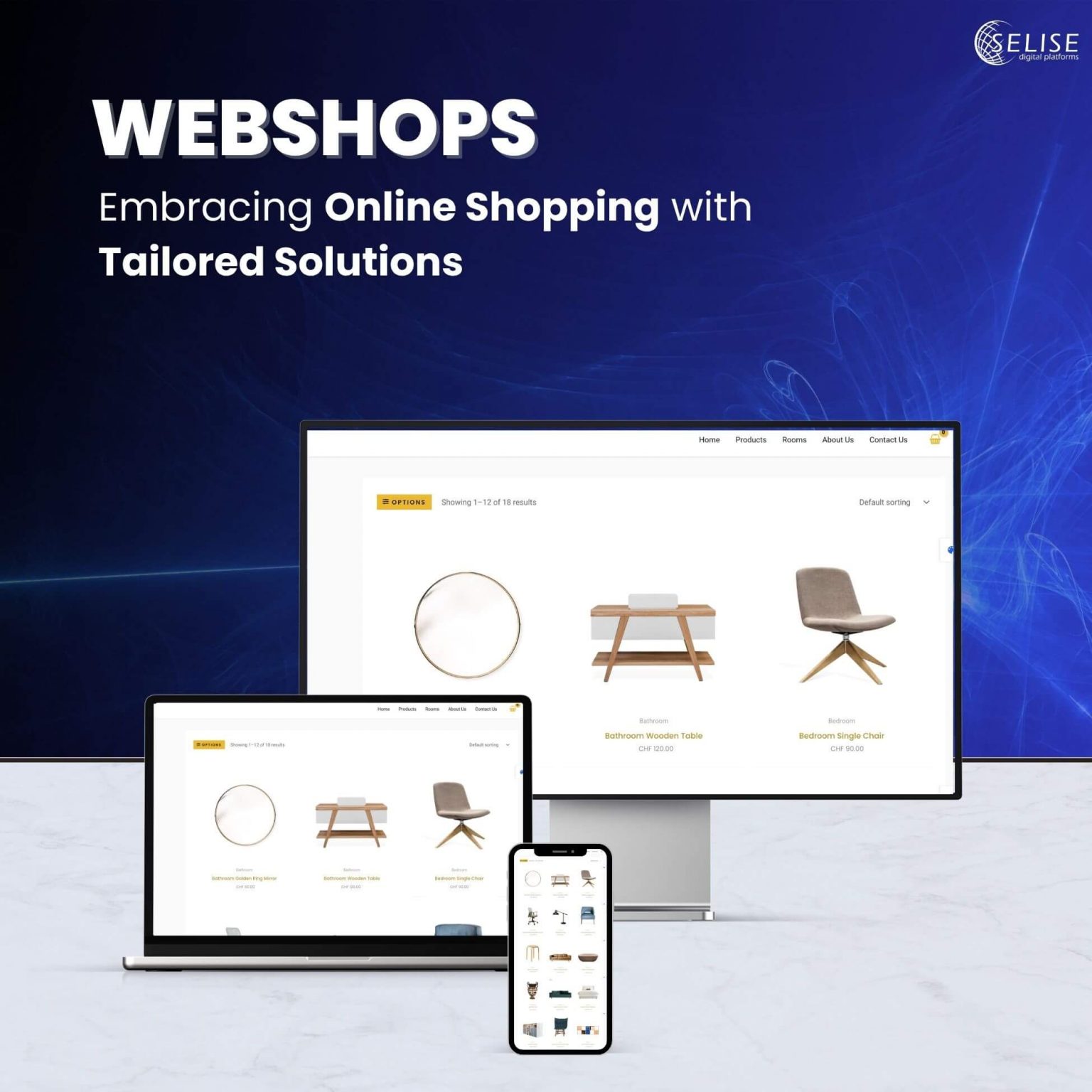- Who We Are
- What We Do
-
-
- Our Services
Industry Expertise
-
Business Functions
Technology
SaaS
-
-
- Insights
- Working at SELISE
- Contact Us
- EN
- DE
en
- EN
- DE

Among the various online shopping paradigms, webshops have emerged as a powerful force, reshaping the online shopping experience for both businesses and customers alike. It is estimated that online shopping would grow to be a $8.148 trillion industry by 2026 (Forbes).
Webshops, also known as custom-built online stores, offer businesses the freedom to make virtual storefronts according to their unique brand identity and specific customer needs. Unlike conventional e-commerce platforms, webshops empower entrepreneurs to craft a digital shopping haven that reflects their vision, values, and products with unparalleled customization.

A webshop is an online store where businesses can sell products or services directly to customers over the internet. Visitors can browse products, add items to their cart, and make purchases through the checkout process. The term is commonly used in European countries.
On the other hand, e-commerce is a wide-ranging concept covering all electronic commercial transactions over the internet, including webshops, online marketplaces, auctions, B2B transactions, digital downloads, and electronic banking, among others. It encompasses the entire spectrum of online commercial activities, not limited to a single online store.

Using a webshop and e-commerce are not inherently opposed to each other. However, using a webshop can provide some added benefits over registering for a regular e-commerce platform:
As things keep changing constantly in the tech world, webshops will also face some new trends in the upcoming days. Onset of AR, VR, AI, data privacy will have a significant role to play in the webshop landscape in the days to come.

SELISE takes pride in its ability to design and develop custom webshops that aid businesses in achieving success in online commerce.
With an unwavering commitment to excellence and efficiency, each webshop SELISE creates ,cater to the unique needs and preferences of its clientele.
At SELISE, the dedicated team ensures that every project receives the utmost attention and dedication, guaranteeing that the clients’ visions are transformed into fully functional and captivating webshops that leave a lasting impact on their target audience.
While webshops for different clients are different, the behind-the-scenes development processes are more or less the same. Angular is used for front-end development, while Ruby on Rails is used on the back-end of the development process. These languages provide a shallower learning curve for the developers and the programmers, which can result in a faster development process, so the end product can be finalized and deployed quickly.
The languages used also are easier to code. Since the same languages can be used for all the projects, for the developers, the skills in these tech stacks are usually transferable. As a result, the final product can be delivered in a short time.
While the current tech stacks undoubtedly benefit the developers, the clients also get some added benefits. For example, if a client’s previous webshop is lacking some features (eg: ‘calendar’ or ‘event’ pages), some of these features can be added through SELISE. Moreover, businesses can have the advantage of having their own webshop built to their specific requirements which ultimately aids them in achieving their goals.
SELISE is on a mission to change the way businesses connect with their customers through tailor-made webshops that deliver unbeatable shopping experiences.
With webshops, businesses can get more than just a platform to showcase their products; the audience will get with a seamless and user-friendly interface. SELISE understands that each business is unique, which is why webshops are crafted to perfectly cater to the specific needs and preferences of a business.
With SELISE by the side, businesses will have the ultimate toolkit to supercharge sales. The dedicated team is committed to provide the best-in-class solutions that drive rapid digital transformation, unlocking enhanced efficiency and cost savings along the way.
Are you ready to elevate your online presence and take your business to new heights? Get in touch with us today, and let’s embark on an exciting journey towards your organization’s success!.
Email: info@selise.ch
Contact Number: +49 89 54196883